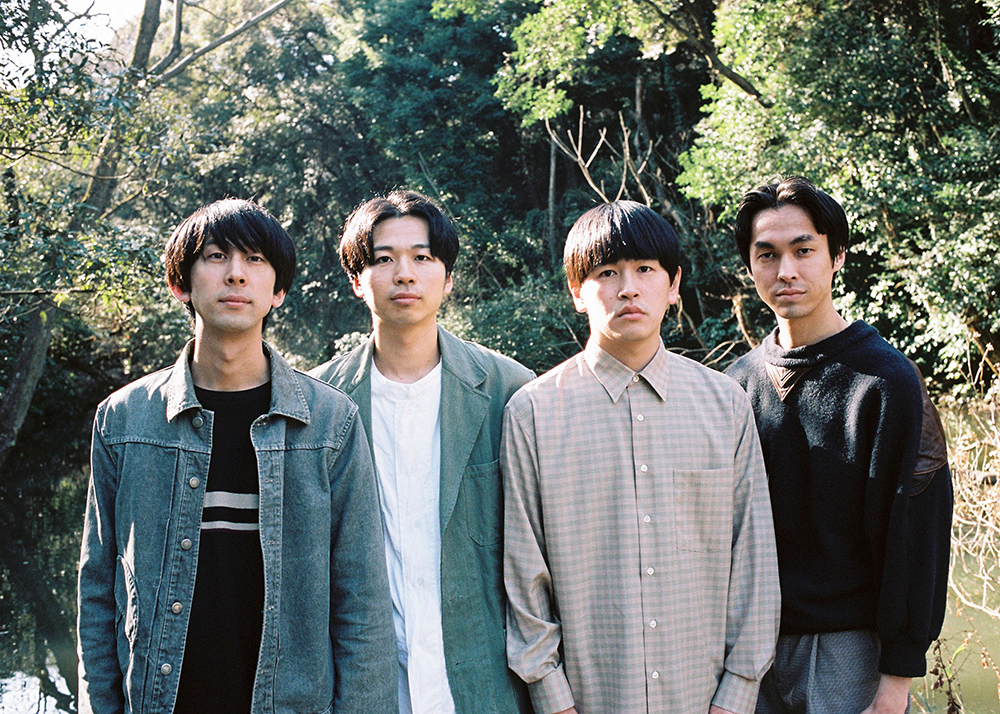After a month of seemingly infinite album releases by Japanese musicians, accompanying them has been some unmissable tracks. August’s indie picks have been most sublime: as well as the Mitsume track below were the likes of Maco Maret’s “Forest Song” and Handsome Boy Technique’s “Long Slow Distance,” both remarkably handsome, serene tunes. On top of all that is a surprisingly stellar track from visual kei legends BUCK-TICK, who I’d mistaken for past-their-prime but whose “Moonlight Escape” is a really satisfying gothic rock number.
Mitsume, ‘Tonic Love’
(Self-Released)
Following their full-length return Ghosts in 2019, Mitsume (pictured above) have kept busy in 2020 with a steady stream of standalone single releases. Those tracks have all teetered around the edges of these monthly roundups, reliably pretty indie tunes that have consistently found themselves ousted, for some reason or another, from the final cut – but certainly not because they lacked quality.
With “Tonic Love,” however, acknowledgement of Mitsume’s current streak is inescapable. The finest so far of the five singles released this year, “Tonic Love” is most notable for its prominent use of bells. Gorgeous and entrancing, those bells massage and soothe in their soft, overlapping rhythms. They’re the stars of the show.
But “Tonic Love” is also about the masterful manner in which those bells are supplemented by the rest of the song. Structured around them are simple bass play and guileful drumming, as well as some wintry, melancholic lyrics and moments of droning and muted guitar. “Tonic Love” wantonly indulges in the simplicity of its bells but such luxury is totally warranted – it’s an exercise in gentle musicianship and an immensely beautiful track.
Keiichi Sokabe, ‘Perpetual Mint Machine’
(Rose Records)
Back in May, Sunny Day Service frontman Keiichi Sokabe released “Sometime In Tokyo City,” a nigh-15-minute folk epic featuring breathtaking, picturesque reflections on his being, his memories, his city and, of course, his curry shop. It was a mellowed turn from the energetic SDS record that preceded it, showing Sokabe to be one of few auteurs with the necessary combination of veteran experience and versatile talent to pull off such a track.
Sokabe’s latest single, “Perpetual Mint Machine,” shows a more energized form of that same vision. Sokabe spectacularly pivots from folk to disco, producing a nine-minute dance tune no less poetic than its predecessor, with the same air of aged, blissful wisdom.
Sokabe’s lyrics again whisk through nostalgic themes, with summery visuals and hints of fantasy in his metaphors. The beat, meanwhile, drives on. Sokabe takes a glamourous guitar loop and carefully adds layers and phases, among which are background vocals, cowbells, funky guitar riffs, a storming solo and a huge variety of synth sounds. Sokabe doesn’t need to prove that he’s a once-in-a-generation artist but “Perpetual Mint Machine” proves it nonetheless; a solid tune that continues a great year for Sokabe.
Daichi Yamamoto, ‘Blueberry’
(Jazzy Sport)
Produced by Qunimune, “Blueberry” stylistically picks up where Daichi Yamamoto’s full-length debut Andless left off. Yamamoto flows over a mellow, retro-tinted trap beat, weaving relatable themes and thoughtful topics among his personal narratives. It’s the main highlight off of his Elephant In My Room EP, a sweet, caring love song.
What sets “Blueberry” apart, however, is its honesty and emotional intelligence. Yamamoto raps of desire in his relationships but also the pains of loneliness, introversion, overdependence and trauma. It’s resonating stuff, packed with particularly pretty metaphors and imagery (“blueberry” refers to the color of the night sky) and, in Yamamoto’s singing and rapping, a decent amount of variation, too.
“Blueberry” is a grounded, sensitive and thoughtful alternative to hip hop’s usual braggadocio that shows Yamamoto as one of Japanese hip hop’s fastest-rising stars.
Denki Groove, ‘Set You Free’
(Macht)
Denki Groove are out to set us all free. From what? From boring pop music. Thirty years later, Takkyu Ishino and Pierre Taki are still rolling out the hits and “Set You Free” is one of their best in a while.
Back in the ‘90s, Denki Groove were known for, as well as their contributions to many other genres of electronic music, their techno. Deliberately or not, the opening patter of “Set You Free” alludes to that, before following-through with another, more obvious quality of the duo’s music: how dependably they switch between heavy electronica and more pop-inspired styles.
As always with Denki Groove, it is the combination of electronic music genres that drives one’s enjoyment of the track. Past the techno tease, “Set You Free” is primarily an electropop tune, scattered with little glints of chiptune and bolstered by dramatic background swells. Those styles are layered beautifully and, as usual with Ishino and Taki, the pacing is excellent.
Even the “set you free” refrain, dead-set for a bit of cheese, becomes a rather uplifting when supported so persuasively. After a relatively short, two-and-a-half-year hiatus for Denki Groove, “Set You Free” is a terrific tune from an ever-reliable act.
Kinoko Hotel, ‘Red Flower – Blue Flower’
(Voltage Records)
Since their beginnings in the late 2000s, Kinoko Hotel have blitzed around genres like psychedelic rock, surf rock, new wave and disco, wrapping them all in a distinct throwback style. Personally, I haven’t always understood the hype. Nevertheless, for a band that so frequently undergo considerable changes to their sound, their popularity among both fans and critics is admirable.
“Red Flower – Blue Flower,” however, definitely reels me into the hype more than anything they’ve released previously. All it’s taken is a bit of madness to draw me in. Or should I say a bit of Madness, the British 2 tone ska new wave dudes that are, between my ears at least, some of the closest musical relatives of “Red Flower – Blue Flower.”
Kinoko Hotel’s latest retro turn is more post-punk-driven than Madness ever were – and its spookier, too. Marianne Shinonome’s organ, combined with such frantic pacing and a seemingly never-ending escalation of chords, amounts to a sort of Scooby-Doo chase-scene montage feel. And, while that may sound more jokey than substantial, there’s a phenomenal tune at the heart of “Red Flower – Blue Flower.” Part-madness, part-Madness, it is terrific, Halloweeny new-wave ska lunacy.








